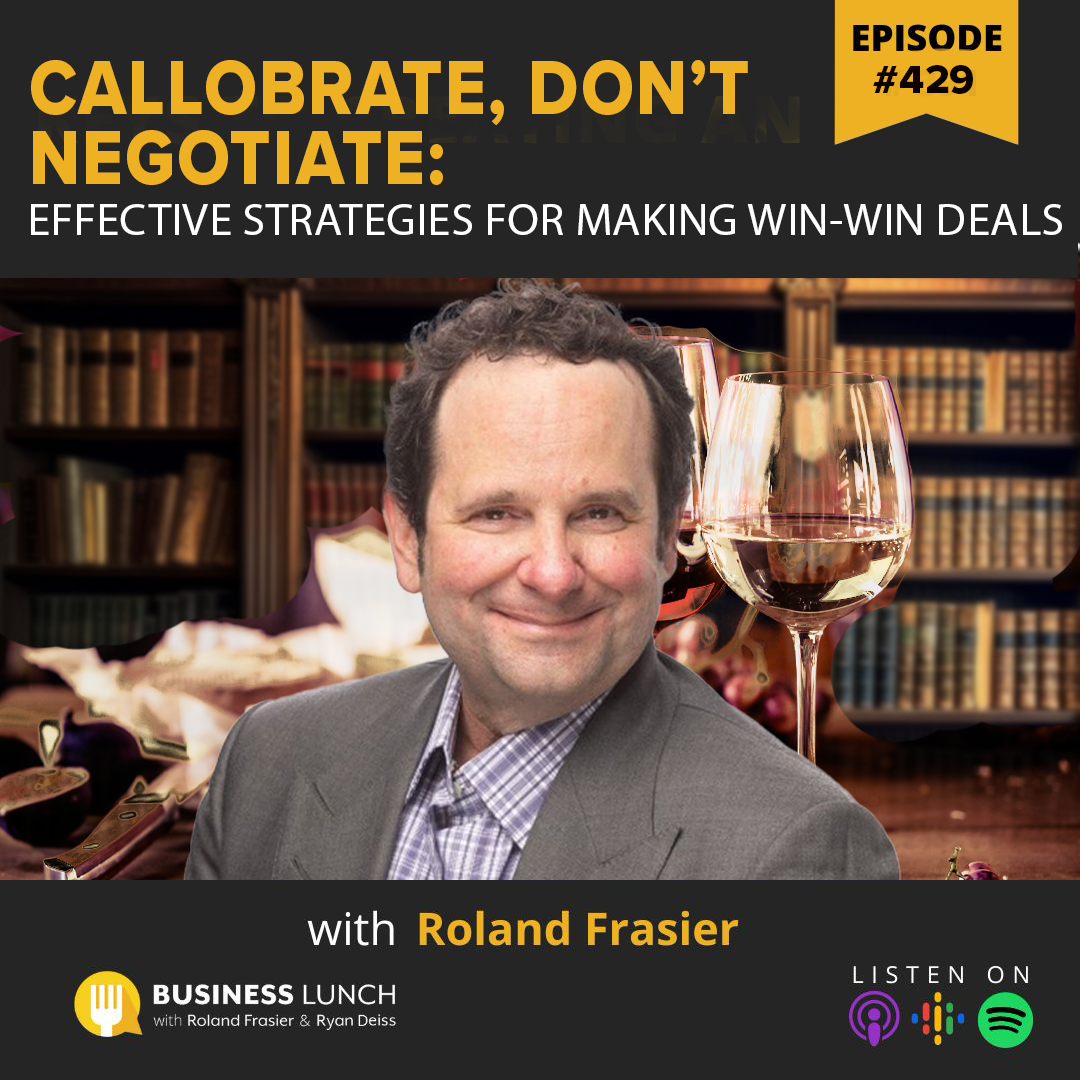In this episode, Roland Frasier shares his valuable insights on successful deal-making. With a diverse background spanning real estate, accounting, securities, and law, Roland brings a unique perspective to negotiations.
He emphasizes the power of collaboration over competition and shares techniques to achieve mutually beneficial outcomes.
TIMESTAMPS
- [00:01:06] Roland’s Background: Roland shares his diverse background in real estate, accounting, securities, and law. He emphasizes his extensive experience negotiating thousands of deals, both for clients and himself.
- [00:02:16] Reframing Negotiation as Collaboration: Frasier challenges the competitive nature of negotiation and proposes a collaborative approach. He suggests focusing on a common goal instead of opposing interests, creating a win-win situation for all parties involved.
- [00:06:43] The Power of Physical and Psychological Positioning: Frasier discusses the significance of both psychological and physical positioning in negotiations. He advises sitting on the same side of the table as the other party to foster collaboration and eliminate barriers.
- [00:08:09] Losing by Winning: Frasier cautions against the dangers of winning a negotiation at the expense of fairness. He shares personal experiences of aggressively pursuing the best deal, only to have agreements fall apart later. He emphasizes the importance of staying within the “zone of fairness” to ensure fair and sustainable deals.
- [00:14:36] Taking the Temperature of the Room: Frasier advises readers to “take the temp” and read the emotional state of everyone involved in the negotiation. Understanding the motivations, emotions, and satisfaction levels of each party helps in determining the appropriate approach and timing for collaboration. He stresses the significance of creating a positive and receptive environment for negotiation.
- [00:17:23] The Law of Price and Terms: Frasier introduces the “Law of Price and Terms” as a powerful negotiation tool. He explains that if the seller sets the price, the buyer can leverage the terms to their advantage, and vice versa. By invoking this law and focusing on the terms rather than haggling on the price, negotiators can create more favorable outcomes and find mutually beneficial agreements.
- [00:20:40] Play It Forward: Frasier emphasizes the importance of playing out various scenarios in negotiations, similar to how one would strategize in chess or anticipate moves in sports. He encourages listeners to respond thoughtfully instead of reacting emotionally. By considering all the facts, circumstances, and potential outcomes, negotiators can make more informed decisions and secure advantageous results. Frasier shares a personal success story where playing out scenarios led to a $4.2 million win in a negotiation.
- [00:24:54] Empathy and Understanding: Frasier emphasizes the importance of empathizing with the other party in a negotiation or collaboration. By setting aside personal desires and focusing on the concerns, needs, and challenges of the other side, negotiators can find points of empathy and work towards mutually beneficial outcomes. Understanding the motivations and emotions of the other party can lead to more effective negotiations and positive results.
- [00:29:22] Just Say No: Frasier introduces the concept of “Just Say No” as a negotiation tactic. He explains that offers, even low ones, should be entertained and responded to, as they are precious opportunities for negotiation. Instead of dismissing a low offer without a response, negotiators should articulate their reasons, provide context, and express their position. By respectfully declining unfair offers and maintaining a strong position, negotiators can protect their interests and potentially lead to more favorable agreements.
- [00:35:36] The Power of the Awkward Pause: Frasier discusses the effectiveness of using an awkward pause after a negotiation offer or counteroffer is made. By remaining silent for a few seconds or more, negotiators can prompt the other party to reconsider their position and often negotiate against themselves. The discomfort of silence often compels the other party to make further concessions or offer better terms, leading to more favorable outcomes.
- [00:38:09] Creative Alternatives to Splitting the Difference: Frasier suggests alternatives to the common practice of splitting the difference when negotiators reach an impasse. He shares two examples: using a coin flip and playing a game such as a pool to determine the final outcome. These creative approaches break the monotony of traditional negotiations and can provide a lighthearted way to resolve the remaining gap in negotiations.
—————
Thanks so much for joining us this week. Want to subscribe to Business Lunch? Have some feedback you’d like to share? Connect with us on iTunes and leave us a review!
More Resources:
Ready to free yourself from your business? Get to connect with peers and experts to find the best strategy HERE.
Discover The EXACT Strategy Roland Has Used To Found, Acquire, Scale And Sell Over Two Dozen Businesses With Sales Ranging From $3 Million To Just Under $4 Billion! EPIC Training
Mentioned in this episode:
Get Roland’s Training on Acquiring Businesses!
Discover The EXACT Strategy Roland Has Used To Found, Acquire, Scale And Sell Over Two Dozen Businesses With Sales Ranging From $3 Million To Just Under $4 Billion!

